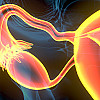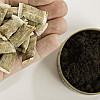Recent Blog Articles

Lead poisoning: What parents should know and do

How does waiting on prostate cancer treatment affect survival?

Does running cause arthritis?

Is alcohol and weight loss surgery a risky combination?

Preventing ovarian cancer: Should women consider removing fallopian tubes?

Healthier planet, healthier people

Is snuff really safer than smoking?

Will miscarriage care remain available?

Considering collagen drinks and supplements?

Does less TV time lower your risk for dementia?
Painful Sexual Intercourse (Dyspareunia)
What Is It?
Pain during or after sexual intercourse is known as dyspareunia. Although this problem can affect men, it is more common in women. Women with dyspareunia may have pain in the vagina, clitoris or labia. There are numerous causes of dyspareunia, many of which are treatable. Common causes include the following:
- Vaginal dryness
- Atrophic vaginitis, a common condition causing thinning of the vaginal lining in postmenopausal women
- Side effects of drugs such as antihistamines and tamoxifen (Nolvadex and other brands)
- An allergic reaction to clothing, spermicides or douches
- Endometriosis, an often painful condition in which tissue from the uterine lining migrates and grows abnormally inside the pelvis
- Inflammation of the area surrounding the vaginal opening, called vulvar vestibulitis
- Skin diseases, such as lichen planus and lichen sclerosus, affecting the vaginal area
- Urinary tract infections, vaginal yeast infections, or sexually transmitted diseases
- Psychological trauma, often stemming from a past history of sexual abuse or trauma
Symptoms
Women with dyspareunia may feel superficial pain at the entrance of the vagina, or deeper pain during penetration or thrusting of the penis. Some women also may experience severe tightening of the vaginal muscles during penetration, a condition called vaginismus.
To continue reading this article, you must log in.
Subscribe to Harvard Health Online for immediate access to health news and information from Harvard Medical School.
- Research health conditions
- Check your symptoms
- Prepare for a doctor's visit or test
- Find the best treatments and procedures for you
- Explore options for better nutrition and exercise
I'd like to receive access to Harvard Health Online for only $4.99 a month.
Sign Me UpAlready a member? Login ».
Disclaimer:
As a service to our readers, Harvard Health Publishing provides access to our library of archived content. Please note the date of last review or update on all articles.
No content on this site, regardless of date, should ever be used as a substitute for direct medical advice from your doctor or other qualified clinician.
Free Healthbeat Signup
Get the latest in health news delivered to your inbox!
